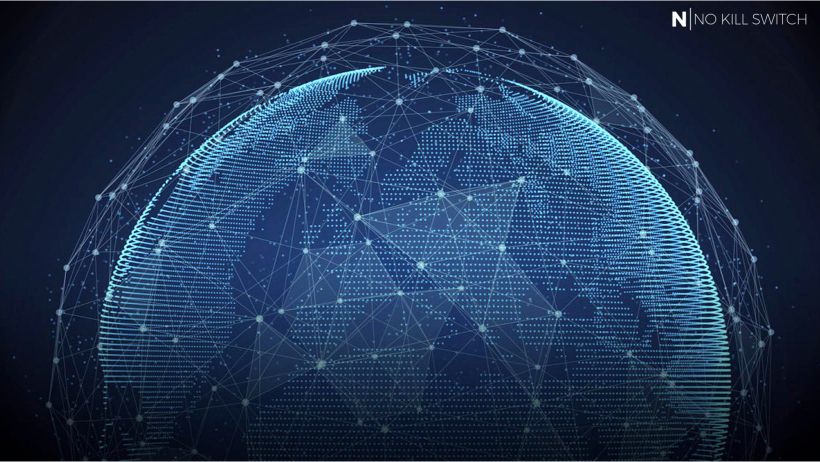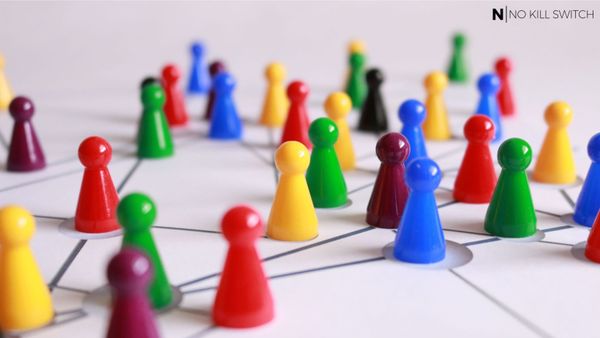TL;DR The need for the decentralized systems is not a fairy tale - we (as a society) depend more and more on opaque "weapons of math destruction", struggle with real-world ecosystems that are just too complex to be manageable in traditional ways. I tend to believe that an amalgamate of basic economic principles (e.g. "invisible hand") & technological paradigm of blockchain-based decentralized ledgers may be a first step to deal with such issues - quasi-biological, antifragile, evolving & decentralized.
Unsurprisingly one of the most frequent topics in my recent discussions among technical people is blockchain. Why unsurprisingly? The global hype is overwhelming, especially in context of Bitcoin, the crazy fluctuations of its exchange rates & how it inspires people imagination :>. The majority of my interlocutors are generally very restrained ("hype comes, hypes goes", "this does not scale"), at least in open discussion :) but I can openly admit:
"I'm hooked on blockchain. I truly am."
Why so? Is it about being an early adopter of something that according to many is an inevitable future? Profiteering due to cryptocurrency price bumps?
Nope, in fact I'm not keen on cryptocurrencies. Curriencies play such an important & foundational role in what our whole societies are based upon that (IMHO) trying to replace them with yet immature digital equivalents is just causing a lot of harm (at this point) - not enough tech-savvy people go for easy benefit, got f#$ked up by speculators, hackers or their own incompetence & not only potential ruin themselves materially, but also crush one of key, trust-based pillars of their reality: certainty that hard-earned money cannot just disappear. I've seen how many people wreaked their lives because of rash & inconsiderate forex gamble - cryptocurrencies can do far more harm.
The Mesh(es)
The reason of my interest in blockchain is different & in fact it's not really about blockchain itself, but about blockchain as a mean (one of, maybe just one of the initial ones) to create fully decentralized systems. Keep in mind - "decentralized" ones, not "distributed" ones - as this is something completely different.
I'm not going to overflow you with the theory, feel free to reach to the sources (these are truly fascinating), my point is that decentralized systems is (according to what I believe) the most feasible (/realistic) path to build systems that are truly Antifragile (according to N.N.Taleb's definition of "antifragility"). Decentralized system build upon:
- token system that can represent any value (monetary or not)
- execution protocol (language) that is Turing complete - to implement transactions between parties (humans or digital "entities")
- ability to validate correctness & authenticity of any transaction going on within a system
can act pretty much like a biological mechanism. These building blocks are truly very simple, but so are the ones biology played with over millenia. I strongly believe that decentralized systems build upon such building blocks can actually imitate evolution & self-optimize themselves over time towards use cases & solutions we can't even imagine today.
City 2.0
OK, that may seem very abstract, but what about an example? Let me bring some of the favourite topics of mine -> I call it CityDAO (DAO stands for Decentralized Autonomous Organization) & treat it as an answer to the fact that modern cities keep becoming worse & worse places to live - they are so complex that it's not even possible to manage some aspects of their growth & development - e.g. traffic & communication.
But what if ... city manages itself. Or rather - all the citizens manage it alltogether in a mesh? Imagine that CityDAO is able to collect information about actions that contribute to the city - the fact that you've used public transportation, planted a tree, report the safety incident, paid local tax - that would let you earn some CityDAO tokens which could be spent on privilege services city can offer you (as a citizen): parking allowance, car admission to the downtown, lower local tax rate, etc.
Actual demand/supply of both contributions & privileges would dynamically adjust their "prices" in a market-like way. While keeping in control just few global parameters (e.g. number of parking spots, max number of cars allowed to the certain area in a given timeframe), system could be "managing" (regulating) itself dynamically, adjusting to current situation (macro-economical, social, technical).
That is in fact not the only topic that comes to my mind, but I find it personally important (it was partially inspired by reading a tremendous book title "Streetfight" by J. Sadik-Khan). The other example worth mentioning is about re-thinking the idea of information (to address the problem of "fake news") as something that is credibility-based (yes, credibility as some sort of "token"), traceable (to the origin) & more "bounded" (fact stays identifiable as the same fact even after passing through several intermediaries) ...
After giving these a thought or two, one could argue (and should!) that such systems can in theory be implemented using more traditional architectures - e.g. services hosted by single party. That's a valid comment (in fact it should be always your first reaction to blockchain-based solution: to question whether decentralization makes sense in this particular case - it still rarely does), but I'm with Cathy O'Neil here: our lives is more & more driven by proprietary systems that not only use our data for unclear reasons, but also make very impactful decisions in a very non-transparent ways (you can read about that more in Cathy's book: Weapons of Math Destruction: How Big Data Increases Inequality and Threatens Democracy).
OH (from an awesome Lyft driver): “Today has been great. I’ve been blessed by the algorithm.”
— Keith Coleman 🌱😀🙌 (@kcoleman) March 16, 2018
Immediately had an eerie feeling that this could become an increasingly common way to describe a day.
New beginning
So yeah, I'm a believer - I really think that the way things are is really forcing us to rethink the very foundational concepts of how applications (& whole systems) work. I'm not saying I'm gonna build something myself, but I believe that someone, somewhere in the garage is already working on something based on the idea of decentralization (& maybe blockchain 2.0, free of the disadvantages of the current generation of blockchain) that will really shake the paradigm of today's digital world.




